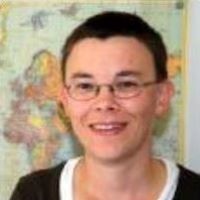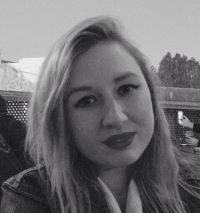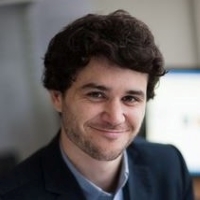-
"I am both honoured and grateful to receive the Asia Institute PhD Scholarship. I am a middle-aged father of three children, so the financial assistance this scholarship provides is a necessity in order for me to undertake full time studies. My utmost commitment to excellence, and contribution to society, would not be possible without the aid of this scholarship."
- Murie Hassan
-
"This scholarship has been crucial in enabling me, as a single parent, to continue my studies this year, as without it, I almost definitely would have had to work to cover our living and school expenses (for both myself and my kids) and therefore I would have had to reduce my study load significantly. Perhaps most importantly, however, this scholarship has given me peace of mind, lessening the burden of worry, and thus enabling me to fully commit to (and enjoy!) both my studies and my kids."
Read Janneke's story
-
"I was thrilled to have been shortlisted for the Ernest Scott Prize alongside three wonderful historians whose work I admire very much. I am honoured and delighted to have been chosen as the 2020 winner. This book had its genesis in my curiosity about the Royal Commission on Human Relationships, which was a ground-breaking inquiry into family and intimate life initiated by the Whitlam government. The Commission had been overlooked by historians to date (and forgotten by many who lived through the decade), but it offered a window onto the social change of the 1970s, and a new way to examine that history."
- Michelle Arrow
-
"Scholarship funding has also enabled me to present initial research findings from my PhD at national and international conferences. Exchanging ideas and receiving feedback on my work has allowed me to explore and apply new perspectives to my PhD research. It has also allowed me to establish myself within early childhood science education research networks."
Read Cristina's story
-
"My advice would be, enjoy what you do and be involved with appropriate passion. In my case, it was being part of my community and actively looking out for those in need of care and support."
Read Sienna's story
-
"As a young person at university, the demands of my caring role meant that I greatly missed out on a fair few leadership and volunteering opportunities that I was passionate about. Now, and with the financial support of the Jennifer Duggan Leaper Scholarship, I can take advantage of these opportunities."
Read Anastasia's story
-
"I hope that I can go back to my home country, Malaysia, to teach after I graduate, and hopefully I will contribute useful ideas to Malaysian schools (especially government schools) with the knowledge and experiences I have gained from this program."
Read Sin Sin's story
-
"During my final years at Wonthaggi Secondary College our Literature teacher took us on a trip to partake in some classes at Melbourne University to assist with our final exams. I remember how much I loved the atmosphere and it was always a place at the back of my mind."
Read Jessica's story
-
"We need Indigenous students to keep taking up these opportunities to show there is still a need for the financial assistance as we endeavour to take up tertiary studies and improve the socio-economic status of Indigenous people in Australia."
Read Josh's story
-
"I don’t just enjoy it, I love it. I love the networking opportunities. I love meeting like-minded people and I love how the program supports our wonderful education system through current research."
Read Emma's story
-
"I am grateful to be able to receive this prize. I come from a disadvantaged socioeconomic background, so this scholarship will go a long way in assisting me through my honours year, and in further helping me realise my academic goals. As well as making my living expenses easier, it also provides some opportunities to go further with my research if needed. This opens up a lot of opportunities for me. Taking the major has definitely helped me to consider non-western academic perspectives, and also to see the world in a more complex manner."
- Thomas Devlin
-
"Aboriginal Women and Coloniality’ was an exceptional subject led by the knowledgeable and passionate course coordinator Di Sandars. The subject explored my interest of history and power within the public place and landscape, through championing black women and role models. I’ve began to understand how Aboriginal women as artists, musicians, writers and political figures are transcending colonial power structures to continue to shape the places around us within contemporary Australia. Thank you for your generosity and support of the subject. I had an incredibly fun, often confronting but always thought-provoking experience."
- Danyelle Bailey
-
"I cannot speak highly enough of the Charlie Perkins Scholarship. It changed my life. There were so many benefits from doing my D.Phil. in Population Health at the University of Oxford. It was home to the World Health Organisation Collaborating Centre for the Prevention of Non-Communicable Diseases, and I spent my days working with some of the brightest minds in the world in my field of study. I could tap into a global network of alumni, as well as the conveyor belt of amazing guest speakers visiting Oxford. Two-thirds of graduates were also from abroad, so I became more worldly, and I returned to Australia more ambitious with my personal goals. What’s more, it was just so amazing to be another student, an “Aussie” studying abroad, there on my own merit, without anyone second-guessing my worth because of my Aboriginality. In community, it can sometimes feel like the weight of the world is on your shoulders with all the expectation – not to mention community politics – and it was just so nourishing for my mind and soul to study abroad with such an incredible group of people. The Charlie Perkins Scholarship is one of the best things to happen in Indigenous Australian education in the last decade."
- Dr Kyle Turner
-
-
-
-
-
-
-
-
-
-
-
-
Previous | page 2 of 6 | Next
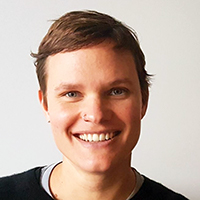 "This scholarship has been crucial in enabling me, as a single parent, to continue my studies this year, as without it, I almost definitely would have had to work to cover our living and school expenses (for both myself and my kids) and therefore I would have had to reduce my study load significantly. Perhaps most importantly, however, this scholarship has given me peace of mind, lessening the burden of worry, and thus enabling me to fully commit to (and enjoy!) both my studies and my kids."
"This scholarship has been crucial in enabling me, as a single parent, to continue my studies this year, as without it, I almost definitely would have had to work to cover our living and school expenses (for both myself and my kids) and therefore I would have had to reduce my study load significantly. Perhaps most importantly, however, this scholarship has given me peace of mind, lessening the burden of worry, and thus enabling me to fully commit to (and enjoy!) both my studies and my kids."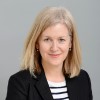 "I was thrilled to have been shortlisted for the Ernest Scott Prize alongside three wonderful historians whose work I admire very much. I am honoured and delighted to have been chosen as the 2020 winner. This book had its genesis in my curiosity about the Royal Commission on Human Relationships, which was a ground-breaking inquiry into family and intimate life initiated by the Whitlam government. The Commission had been overlooked by historians to date (and forgotten by many who lived through the decade), but it offered a window onto the social change of the 1970s, and a new way to examine that history."
"I was thrilled to have been shortlisted for the Ernest Scott Prize alongside three wonderful historians whose work I admire very much. I am honoured and delighted to have been chosen as the 2020 winner. This book had its genesis in my curiosity about the Royal Commission on Human Relationships, which was a ground-breaking inquiry into family and intimate life initiated by the Whitlam government. The Commission had been overlooked by historians to date (and forgotten by many who lived through the decade), but it offered a window onto the social change of the 1970s, and a new way to examine that history."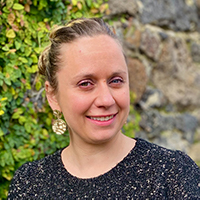 "Scholarship funding has also enabled me to present initial research findings from my PhD at national and international conferences. Exchanging ideas and receiving feedback on my work has allowed me to explore and apply new perspectives to my PhD research. It has also allowed me to establish myself within early childhood science education research networks."
"Scholarship funding has also enabled me to present initial research findings from my PhD at national and international conferences. Exchanging ideas and receiving feedback on my work has allowed me to explore and apply new perspectives to my PhD research. It has also allowed me to establish myself within early childhood science education research networks." "My advice would be, enjoy what you do and be involved with appropriate passion. In my case, it was being part of my community and actively looking out for those in need of care and support."
"My advice would be, enjoy what you do and be involved with appropriate passion. In my case, it was being part of my community and actively looking out for those in need of care and support." "As a young person at university, the demands of my caring role meant that I greatly missed out on a fair few leadership and volunteering opportunities that I was passionate about. Now, and with the financial support of the Jennifer Duggan Leaper Scholarship, I can take advantage of these opportunities."
"As a young person at university, the demands of my caring role meant that I greatly missed out on a fair few leadership and volunteering opportunities that I was passionate about. Now, and with the financial support of the Jennifer Duggan Leaper Scholarship, I can take advantage of these opportunities."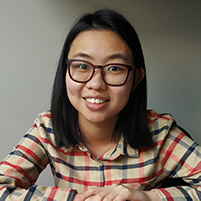 "I hope that I can go back to my home country, Malaysia, to teach after I graduate, and hopefully I will contribute useful ideas to Malaysian schools (especially government schools) with the knowledge and experiences I have gained from this program."
"I hope that I can go back to my home country, Malaysia, to teach after I graduate, and hopefully I will contribute useful ideas to Malaysian schools (especially government schools) with the knowledge and experiences I have gained from this program." "During my final years at Wonthaggi Secondary College our Literature teacher took us on a trip to partake in some classes at Melbourne University to assist with our final exams. I remember how much I loved the atmosphere and it was always a place at the back of my mind."
"During my final years at Wonthaggi Secondary College our Literature teacher took us on a trip to partake in some classes at Melbourne University to assist with our final exams. I remember how much I loved the atmosphere and it was always a place at the back of my mind."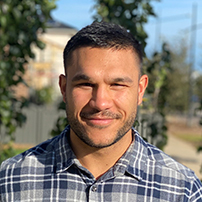 "We need Indigenous students to keep taking up these opportunities to show there is still a need for the financial assistance as we endeavour to take up tertiary studies and improve the socio-economic status of Indigenous people in Australia."
"We need Indigenous students to keep taking up these opportunities to show there is still a need for the financial assistance as we endeavour to take up tertiary studies and improve the socio-economic status of Indigenous people in Australia."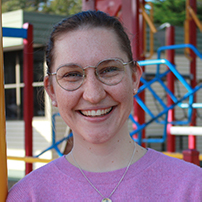 "I don’t just enjoy it, I love it. I love the networking opportunities. I love meeting like-minded people and I love how the program supports our wonderful education system through current research."
"I don’t just enjoy it, I love it. I love the networking opportunities. I love meeting like-minded people and I love how the program supports our wonderful education system through current research." "I am grateful to be able to receive this prize. I come from a disadvantaged socioeconomic background, so this scholarship will go a long way in assisting me through my honours year, and in further helping me realise my academic goals. As well as making my living expenses easier, it also provides some opportunities to go further with my research if needed. This opens up a lot of opportunities for me. Taking the major has definitely helped me to consider non-western academic perspectives, and also to see the world in a more complex manner."
"I am grateful to be able to receive this prize. I come from a disadvantaged socioeconomic background, so this scholarship will go a long way in assisting me through my honours year, and in further helping me realise my academic goals. As well as making my living expenses easier, it also provides some opportunities to go further with my research if needed. This opens up a lot of opportunities for me. Taking the major has definitely helped me to consider non-western academic perspectives, and also to see the world in a more complex manner."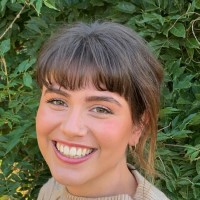 "Aboriginal Women and Coloniality’ was an exceptional subject led by the knowledgeable and passionate course coordinator Di Sandars. The subject explored my interest of history and power within the public place and landscape, through championing black women and role models. I’ve began to understand how Aboriginal women as artists, musicians, writers and political figures are transcending colonial power structures to continue to shape the places around us within contemporary Australia. Thank you for your generosity and support of the subject. I had an incredibly fun, often confronting but always thought-provoking experience."
"Aboriginal Women and Coloniality’ was an exceptional subject led by the knowledgeable and passionate course coordinator Di Sandars. The subject explored my interest of history and power within the public place and landscape, through championing black women and role models. I’ve began to understand how Aboriginal women as artists, musicians, writers and political figures are transcending colonial power structures to continue to shape the places around us within contemporary Australia. Thank you for your generosity and support of the subject. I had an incredibly fun, often confronting but always thought-provoking experience."



